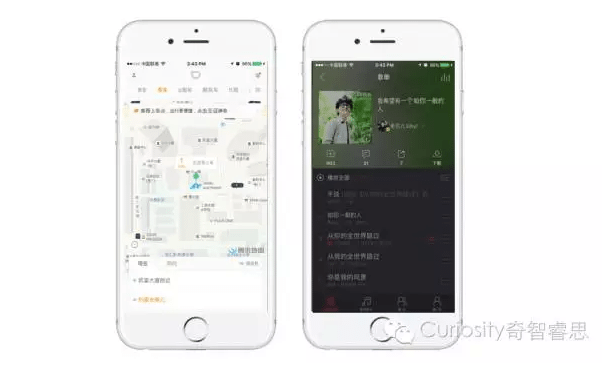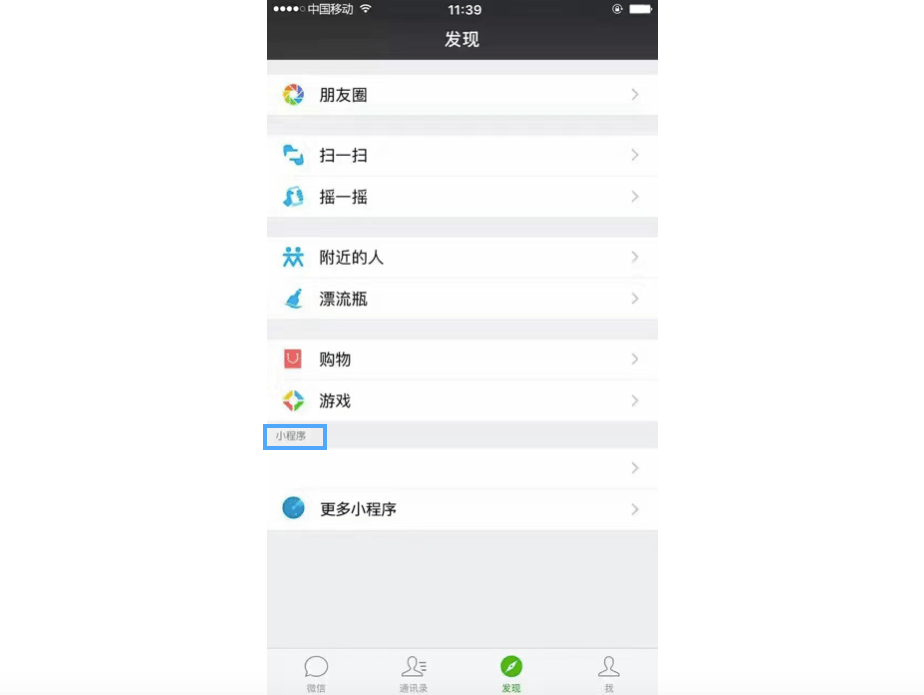If you're an avid user of WeChat, either for personal or business reasons (or both), you may have seen news of the introduction of the “WeChat Mini Program"
(with no official English name, the program is called Weixin Xiaochengxu, 微信小程序 in Chinese) shared by your friends in group chats or in their Moments.
It is not an exaggeration to say that a new era has possibly come to WeChat with the Mini Program in the game. Since Tencent officially sent out invitations for the internal testing of the Mini Program (previously known as application accounts) on the morning of September 22, China’s tech scene has been buzzing about the news. Here are a few key things that brands should know about the new program:
What is a WeChat "mini-app"?#
A WeChat mini-app is an application that can be used without having to download and install it. Users can scan a QR code or search for the app’s name to open it in WeChat. There would be no need to download apps that you do not frequently use, which clutter up your phone and take up internal storage (16GB iPhone users will understand the importance of this).
Given that it would be easier to obtain users by leveraging on the massive user base of WeChat, users don’t need to re-download an app when they switch to a new phone (just WeChat), and that caching would make loading and using the mini-app faster, WeChat's Mini Program is definitely a force to be reckoned with.
Even though Tencent has mentioned through its Q&A that this move is intended to be an open platform for the delivery of quality service, many have seen the introduction of mini-apps as a WeChat version of the App Store. The question is, how will mini apps affect us?
The impact of the Mini Program#
Question 1: Will mini-apps replace standalone mobile apps?#
The answer is: it depends.
Mini-apps have several key benefits. They’re cheaper than developing a standalone mobile app, since one version fits all—no more Android/iOS versions required for phones with different operating systems. They can also be shared across different platforms (e.g. in chat rooms) since each mini-app is technically a webpage in itself.
Furthermore, for brands or startups unsure about investing their otherwise limited resources into building an actual app, they can start with WeChat's Mini Program in order to get enough feedback or user data, before deciding to build an individual app if the need arises in the future.
However, not all kinds of apps can be replaced by mini-apps.
The Mini Program is meant more for “lighter” apps, such as those for booking train tickets or hailing rides (such as through Didi). “Heavier” apps that require more stability, such as game, video, or music apps, will probably still require a more stable and smooth environment provided by developing a standalone platform. Since it really depends on the type of app one needs to create, it’s unlikely that the WeChat Mini Program could replace all apps in the market.

Question 2: Can I sell a product via the Mini Program, and what would be required for me to do so?#
Since WeChat's Mini Program is still in the internal testing stage, it's hard to say what kinds of functions, restrictions, and requirements they might have for companies who want to start their own Mini-App.
However, there are speculations that brands can now leverage the Mini Program to have their customers order directly from their verified application account. If this will materialize in the future, then this can affect aggregation platforms such as JD.com and Tmall if merchants decide to launch their own mini-app.
On the other hand, the introduction of the Mini Program also presents a new opportunity for merchants: it would be a new distribution channel for brands, becoming yet another competitor among e-commerce giants like Alibaba and JD.com. WeChat will now become a platform that combines and connects almost every aspect of life in a way that counterparts in other countries like Facebook are lagging behind on.
The WeChat Mini Program verification process is strict. Tencent, or an entrusted third party, would verify a mini-app based on legality, reasonability, safety, stability, operationality, user experience, and more, and tests would be run for the entire verification process.
If a mini-app fails the verification, then it cannot be published. The entire process is similar to that of submitting an app for a review before it can appear on Apple’s App Store (another reason why people say WeChat is creating its own “App Store”).
Question 3: How is a mini-app different from a service account?#
For now, we know that the mini-apps would appear in the “Discover” Tab in WeChat, and not in between conversations like service accounts.

The Mini Program would work like applications, and service accounts would possibly remain a way for brands to push messages in the form of articles to their users, since one is unable to do so with mini-apps.
There are many speculations about the Mini Program since it is still in the internal testing stage. Once it is fully launched, individuals, businesses, government, media, and other organizations can apply and register a mini-app.
Alexis Bonhomme is the co-founder and general manager of CuriosityChina. Follow on LinkedIn.
